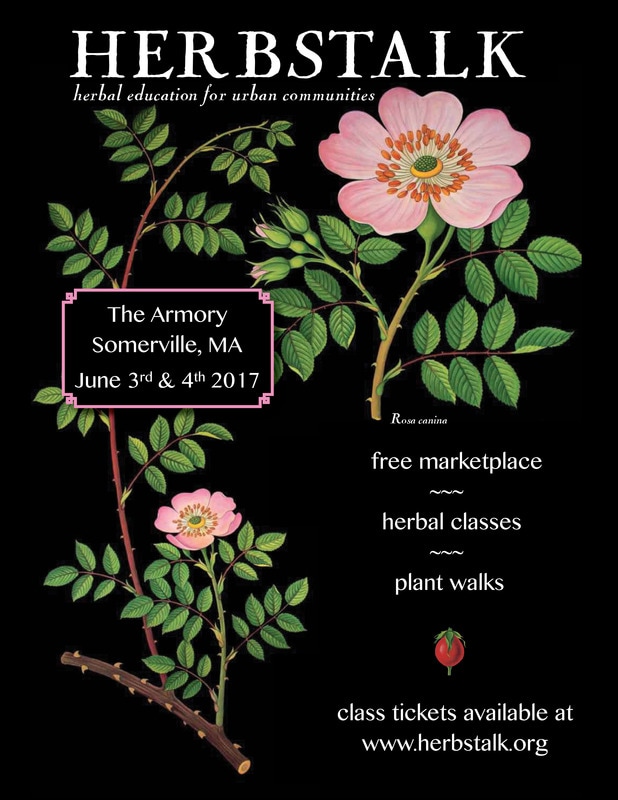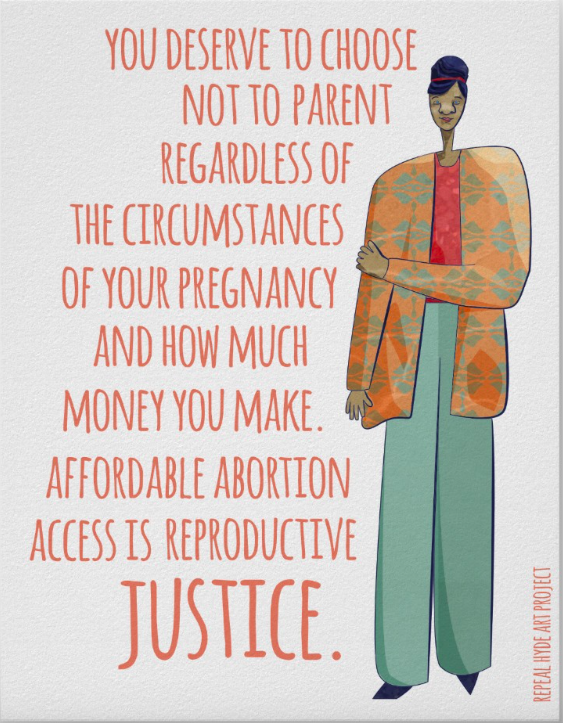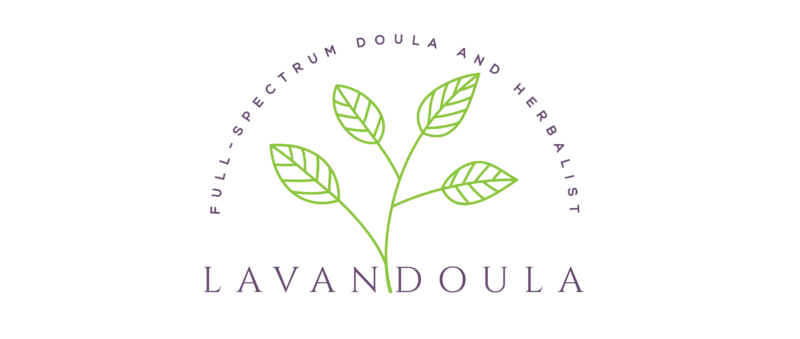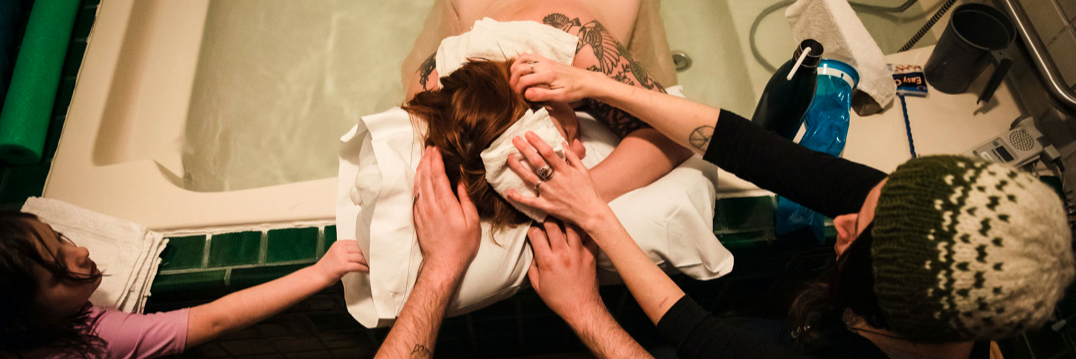Just a reminder that, even in Massachusetts, and even before Roe V. Wade was overturned, fake abortion clinics outnumbered real abortion clinics by the dozens. Nearly 30 are currently operating around Mass in 2024. If you, or anyone you know, is looking for a *real* abortion clinic, check out IneedanA.com.
Birthkeeper Herbalism and BotanicWise
September 25-27, 2020, BotanicWise, the 10th annual mid-Atlantic Women’s Herbal Gathering will be taking place online.
I happen to be one of the presenters this year, offering a workshop about herbal care for pregnancy loss. My plan is to focus on folks who experience pregnancy loss as well as those who are often caretakers or witnesses to others’ experiences around miscarriage or abortion.
Stay tuned for more herbal workshops. I’ve been reorganizing my offerings this year and am finally ready to relaunch my newest project, Birthkeeper Herbalism.
Abortion and Pregnancy Loss Resources
Abortion and Loss
The Boston Abortion Support Collective provides completely free support for people experiencing abortion, miscarriage or stillbirth in the Boston area. We have a small availability of affordable birth doulas, as well!
Backline is a judgement-free resource for folks considering what to do when they find themselves pregnant. They have a free phone line to discuss pregnancy options, and counseling before and after any decisions are made. Backline also started the resource Faith Aloud, in which clergy from various faith traditions are available to non-judgmentally counsel callers through decision making around pregnancy.
The Eastern Massachusetts Abortion Fund provides small grants to folks who need to access abortion care in Eastern Massachusetts in order to make abortion care more affordable.
The Pregnancy Panic Companion is a teen friendly resource for accurate information about pregnancy scares and available options.
Holding Our Space is an interactive community based around supporting those who have lost a pregnancy in any way. Stories of infertility, miscarriage, abortion, adoption, stillbirth and more are all supported and welcomed.
Support Boston Abortion Support Collective this fall!
Herbstalk 2017
Herbstalk 2017 will be happening again at the Somerville Armory on June 3rd and 4th. Along with many other herbalists, I will be teaching a class at the event about herbal allies for pregnancy loss. Keep an eye out for the schedule falling into place, and I’ll see you at Herbstalk!
Interview with an Acupuncturist
Last week, I had the pleasure of making a little video interview with local acupuncturist, Angela Bell. She often works with folks who are trying to conceive (including with IVF and other fertility treatments), as well as during pregnancy and generally focuses her practice on women’s health. More about her practice can be found on her Facebook and website.
One thing I so adore about Angela is her desire to connect and highlight others who are birth workers in the Boston area. She holds networking events, and has continued to host a video series on her social media pages for other birth workers to highlight their work. She’s chatted with doulas, massage therapists, midwives, yoga instructors, lactation consultants and others about the work we all do with clients.
In our 30 minute interview, we cover what it means to be a “full-spectrum” doula. I talk about why I decided to become a doula, the work I do with the Boston Doula Project, how others doing this work can best support LGBTQ+ families. We also chat about placenta encapsulation, my practice in Western herbal medicine and what it means to be an advocate for folks in all of this work. If you’re interested to get to know me a little better, check out this video interview!
The Business of Being a Doula
A few folks in my life have recently asked how I feel about the divisive/controversial ProDoula articles that are circulating. Honestly, as someone who chooses not to use any social media, I probably would have missed this entirely if folks didn’t bring it to my attention. I was relatively preoccupied while attending two clients’ 37-week labors, organizing the year’s goals with the steering committee of the Boston Doula Project, and encapsulating another client’s placenta.
Generally, I think there is enough space in Boston (I can’t speak for smaller or more rural communities) for many types of doula practices and their clients. While some doulas have always argued that providing free or very low-cost services devalues doula work as a profession, others continue to provide free or very low-cost services because it is exactly what they are called to do. I absolutely believe folks need to charge a rate for their work that is sustainable to them. On-call support for labor is extremely valuable, and not just because the studies show doulas save thousands of dollars in healthcare costs. We literally prevent trauma (and hold space for trauma that exists) on a regular basis.
The ProDoula founder is right to say that plumbers don’t worry about people who can’t afford to hire plumbers, but birth is not the same as home repairs. Supporting one another in the childbearing year is something that people have always done, and are always going to do. We live in a time and place in human history where folks aren’t all having 15 babies, witnessing 10 younger siblings be born, hanging out around groups who are feeding babies at their chests, and having that community of support built in. We’re giving birth in hospitals, often in big cities far away from family. Most often, the first birth people witness is their own baby’s! We’re needing to pay people out of pocket to create a sense of that lost community support. This used to be culturally built-in, for everyone, for free.
I’m all for folks charging what they need to in order to make their work sustainable – that part’s important and isn’t typically emphasized in many doula trainings. Most doula trainings emphasize what’s normal in birth and postpartum, what’s not, how to be a compassionate and competent helper and how to plug into the extended community of resources for when you need to make referrals. These articles make it sound like ProDoula’s trainings emphasize profits, avoiding the local community (“ProDoula tells doulas to ignore local doula collectives — why fraternize with the competition?”) ostracizing new doulas, and not making referrals because your agency provides The Best And Only care.
- Kara Schamell, at Modern Mama Midwifery has tons of experience, especially in sanitation techniques and lab safety as a midwife. We back up each other’s placenta clients in the case of travel or client birth overlap.
- Jennifer Lynn Frye, at New England Placenta Encapsulation, who has a background in nursing, and has been providing this service since 2014. She was also part of the first-ever batch of Boston Doula Project trainees.
- Jennifer Lewis, at New Life Blessings has encapsulated over 250 placentas in MA, RI and CT.
Between Christianity and Abortion
While popular news media has us believing that Christianity and abortion activism are at odds, I’ve lately been digging deeper. Last year, I had the privilege of hearing Dr. Willie Parker speak at Hampshire College’s annual Civil Liberties and Public Policy conference. Dr. Parker is one of two doctors who provide care at the only abortion clinic in Mississippi. No doctors in state are willing to do this, so he has to travel in on a regular basis. He also provides this service in Alabama. Dr. Parker has 22 years of experience as an OB/GYN, and started his career by supporting pregnant and birthing folks and catching full-term babies. He is a lifelong Christian and one of the few brave abortion providers in the American South.
In a workshop about the overlaps between reproductive justice activism and communities of faith, Parker described his “come to Jesus” moment that led him to become an abortion provider. He had previously sworn off abortion, as many medical providers do, because they’re not required to learn about it in school. One day, Dr. Parker was listening to a Dr. Martin Luther King Jr. sermon on the Good Samaritan. This parable is from the book of Luke, and Jesus tells about a beaten and battered man on the side of the road. Folks travel by without stopping to help the man, until a Samaritan comes and treats this man as a good neighbor should in his time of need. A light went off in Dr. Parker’s head. “We know what happens when abortion is illegal,” Parker says. “Women suffer and they die. But when abortion is safe and legal, patient mortality goes virtually to zero.” On the anniversary of the famous church murder of late-term abortion provider Dr. Tiller, Parker starts his practice as an abortion provider.
While conversing with Rev. Jeff Mansfield of First Church Somerville about this, he told me about the Clergy Consultation Service on Abortion. Little did I know, before Roe v. Wade in 1973, Christian ministers and Jewish rabbis were publicly running an illegal abortion referral service to thousands of Americans. The program started at Judson Memorial in New York, but Chicago, Austin and other cities quickly joined the force. Coordinator Rev. Howard Moody (who passed away in 2012) even publicly announced the referral service in a front page New York Times article in May of 1967. He organized 1,400 clergy around the country who helped thousands of folks access safe abortions. Because of the illegal nature of the service, estimates vary, but sources claim that while the Clergy Consultation Service was active, they were able to refer upwards of 100,000 (possibly up to 500,000) people to safe abortion providers. Comparatively, the well-known-to-feminists Chicago-based Jane abortion service reached 11,000 folks pre-Roe v. Wade.
Volunteers with the religious group traveled around the United States and the world seeking illegal abortion providers. They would pose as someone seeking an abortion to check about the provider’s bedside manor, cleanliness, safety. Knowing that many referrals came from the clergy, the providers were encouraged by the group to offer services at affordable rates. Always open to feedback and interested in the experiences of the patients they referred, the Clergy Consultation Service seems to have never had a complication from any of the hundreds of thousands of abortions in over six years.
New York City legalized abortion in 1970, and folks who had the resources (wealthy, white people) got the opportunity to travel to the area to access a safe, legal abortion procedure. People of faith were instrumental in forming the first clinics in NYC. The folks involved with the referral service knew exactly how much an abortion should cost. In order to keep cost down, the clergy recognized abortion should ideally be “early, safe and inexpensive,” and should be moved out of hospitals and into freestanding clinics. Their first clinic, Wom

en’s Services, was intentionally painted in bright colors to differentiate it from a medical setting. The logic held up, “Since abortion was not a sickness, the atmosphere associated with hospitals needed to be avoided.” To me, it is easy to draw a parallel to folks with low-risk pregnancies seeking birth center and home birth care in lieu of a hospital, because pregnancy is not an illness.
Because of the clergy’s guidance, this first clinic charged $200 for an abortion when it opened in 1970, and was able to reduce the price to $125 within a year. The quarter of all patients who could not afford the fee were only required to pay $25. This significantly influenced safe, legal abortion care in the United States through today. Although, restrictive court cases continue to come up. A recent example is Whole Woman’s Health v. Hellerstedt, which would have required all abortion clinics to have the facilities of ambulatory surgical centers (thus increasing costs and decreasing access for millions of folks in the already restricted state of Texas). Unfortunately, the future of the supreme court and many decisions about the legality, safety and affordability of reproductive healthcare depend on a highly unpredictable man who has said women should be punished for having an abortion.
Today, a first trimester abortion procedure costs $650. As insurance varies state to state, the future of the Affordable Care Act is in question, and the Hyde Amendment prevents public medicaid funding from covering abortion, abortion funds around the country are trying to make up for the difference. While hospitals continue to provide abortion services (about 4% of them, annually), freestanding clinics like the pink house in Mississippi are making reproductive healthcare as accessible as they can to the communities they serve.
The reality is that the majority of folks who need to access abortion care do not identify as pro-choice. About 38% of folks who have abortions in the US do not identify with a religion. The rest, the majority are Catholic, Protestant, Evangelical or identify with other religious and spiritual groups. Speaking to folks who work in clinics, they often see sidewalk protesters come in for a procedure and go back to protesting the following week. Regardless of how frustrating this may seem, many abortion providers are able to keep doing their work, despite threats of violence and death, restrictive laws, and heartbreaking interactions with patients… because of their faith in God.
Resources
Ministers of a Higher Law by Joshua Wolff, telling the true story of the Clergy Consultation Service on Abortion
Faith Aloud is a compassionate religious and spiritual abortion counseling resource.
Trapped is a documentary about new restrictive abortion laws, prominently featuring Dr. Parker.
For Boston-area folks, First Church Somerville
Ending a Wanted Pregnancy’s compassionate response to harmful, religiously-toned inflammatory comments.
Adoption Is Not a Universal Alternative to Abortion, No Matter What Anti-Choicers Say
Holding Our Space to Honor Pregnancy Loss
Holding Our Space is the community spearheaded by my friend and local doula Jacqui Morton. This project intends to bring more public conversation to the experiences of pregnancy loss, miscarriage and abortion, as well as space to grieve and find community and camaraderie with others who have gone through the same.
With a small grant from the Abortion Conversations Project, and collaboration with the Common Street Spiritual Center in Natick, MA, Holding Our Space will be hosting an event from June 16-18, 2016. There will be a common space for community to meet, grieve, share stories and work toward healing. Abortion doula and activist Brenda Hernandez will open the space with yoga on Friday night. Doulas will be available throughout the event to provide companionship, a listening ear or a hand to hold.
For more information, or to get involved with Holding Our Space, check out the tumblr and Facebook pages.
Herbs to Hold, Post Abortion
I have an upcoming class at the CommonWealth Center for Holistic Herbalism on herbal support after abortion. More about the class and signup can be found here. Class will be Wednesday, April 20th from 7-9pm. Find us at 25 St. Mary’s Court in Brookline, MA (accessible off the green line – the school can be found in the alleyway behind the Whole Foods).
While volunteering with the Boston Doula Project, and working around Boston as a birth doula, a significant amount of the stories I hear from clients involve ending wanted pregnancies due to significant health problems, or needing to have a clinical abortion after experiencing an incomplete miscarriage. From ectopic pregnancies that significantly threaten the life and health of the mother, to chromosomal abnormalities that are considered “incompatible with life,” the path to abortion and pregnancy loss is rarely simple for anyone.
In this class, I hope to dismantle some of the stigma surrounding abortion and pregnancy loss. I will give an “abortion 101” for everyone, a general background on the available options for ending a pregnancy at various gestational states in the Boston area. We will learn how to know which providers are really providers, and which may be giving out inaccurate health information. Then we will focus on how to support someone you love (or yourself!) when going through this experience.
Herbs can be used to support us emotionally, as well as physically build us back up after blood loss, or help support the body in getting back to a hormonally non-pregnant place. With one in three cis-women experiencing an abortion in her lifetime, this class will definitely touch upon ways to support yourself or somebody you care about.

